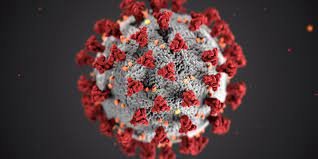COVID Policy
Current policy
The COVID pandemic forced the cancellation of the Paine to Pain Trail-Half Marathon. (You can read our Race Cancellation Policy here.
The race returned in 2021, when we implemented a vaccination requirement.
However, due to the enormous success of the COVID vaccination program, the substantial decrease in severe illness, and that the event is outdoors, we suspended the vaccination requirement used in 2021.
Let's all hope there aren't any funky new variants that come down the pike that force a change.
In case you're curious what a change might look like, you can read the 2021 policy below.
2021 policy
So we opened registration on April 22 [2021] and people saw something new (for us): A requirement that you be vaccinated to participate.
So here's a few words on the response to the policy and why we did it. First the response. We had over 500 people register within 48 hours. Yeah, that's a lot.
How many complained? Five. So the vast, vast, vast majority of runners in the NYC area are clearly on board with this.
Second, why? Well, as I mentioned when we opened registration, I don't have a crystal ball. While the trajectory of beating back the virus looks good now as I type here in April, I have no idea what will come two, three or four months from now.
Will there be new strains that spread faster? Are deadlier? Are vaccine-resistant? Beats the hell out of me.
On race day we may have 800 athletes darting in/out of port-a-potties, congregating closely in lines to claim bibs, congregating closely at the start, running in each other's huffing-and-puffing slipstreams for minutes on end, coming into contact with many volunteers (some of whom are children) and using the high school's locker rooms (if they allow us).
So while this is an outdoor event, risks still remain. But this is not the kind of risk you take for yourself — like getting impaled on a tree limb after you trip. Instead, it's a risk foisted upon others that may come into contact with a panting asymptomatic participant.
We put the vaccination policy in place because that's the best we can do for now, and we sure as hell can't put one in place after people have signed up.
The analysis was easy. All we had to do was ask ourselves: What are the ramifications of being wrong?
Well, if things go south virus-wise, unvaccinated runners who are asymptomatic might infect other members of the community. That would be bad. Very, very, bad.
But if things continue to go well virus-wise, then what was the harm in a wrong guess now? I could always reverse the policy later. BFD.
So this was an easy call to make. There was no down side to demanding the vaccination, but you couldn't say the same for the reverse.
Now there may be some who can't currently get the vaccine due to an age restriction or a documentable medical restriction. Those people can contact me and, come September if they still can't get it, we'll talk. Based on the prevailing pandemic conditions (assuming the race even goes off) I will make my best efforts to come up with a reasonable accommodation as I have done in the past for disabled athletes. But you should know that "I don't wanna" is not a valid reason.
It's tempting to try and persuade the very few anti-vax runners to get this done. But if they won't listen to the brightest epidemiologists, virologists, and infectious disease doctors in the world, who have spent their lives studying this stuff, then they are unlikely to listen to some race director.
Let's hope that come October I see all of you at the start line waiting for the musket shot and the worst I see are some scraped knees at the finish. And let's hope that, with the help of a cooperative community, the virus is beat back and we can race with abandon through the woods (and the mud?) like a bunch of kids.
—Eric Turkewitz
